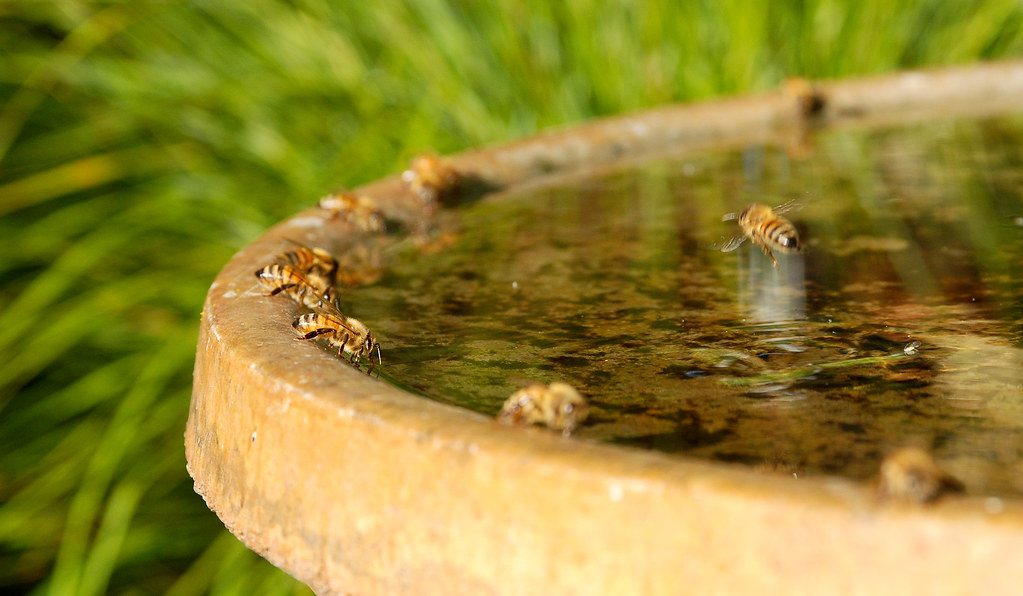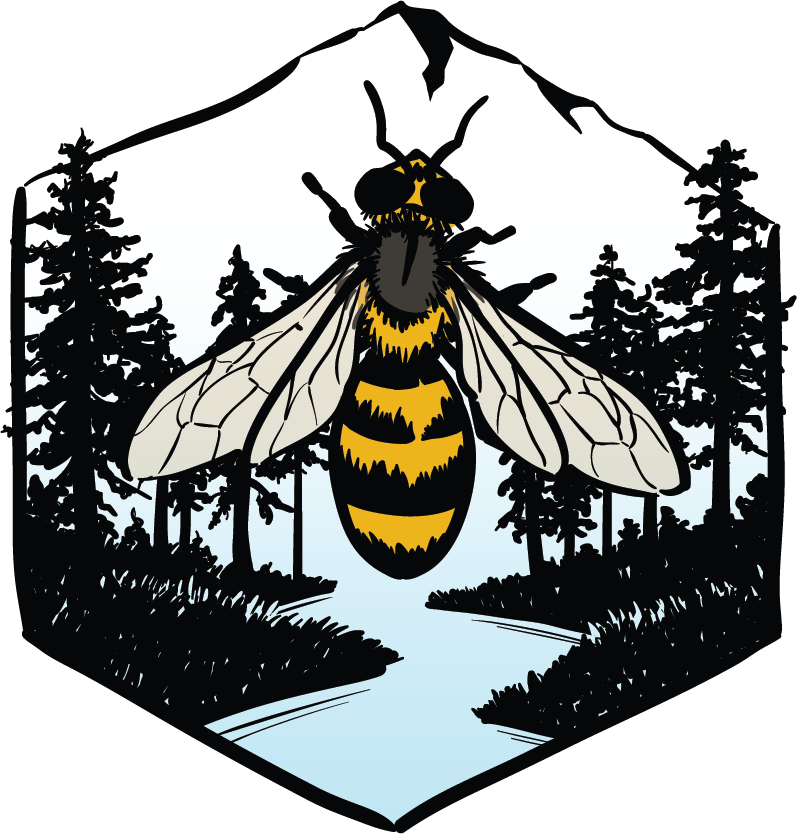We typically think of honey bee foraging as gathering pollen and nectar from flowers. However, they also forge for propolis and water. As the bee nutrition studies at OSU by Ramesh Sagili and postdoc Priya Charkrabarti demonstrate, the nutritional requirements of honey bees are quite complex. It turns out that maybe nectar and pollen doesn’t supply everything bees need – water might also be important. See Flickr photo.

PhD studies by Dr. Rachael Bonoan, at Tufts University demonstrated that honey bees use water sources to complement, and sometimes supplement, the minerals in their diet. Two of her findings specifically relate to fall dietary needs. As magnesium levels drop in pollen during the summer and fall, she was able to demonstrate that the bees seek mineral rich water sources. Another of the findings has shown that while calcium levels increase in fall pollen sources, so too do the bee’s preference for calcium in water. We know calcium, along with potassium, are useful for the muscle activity needed to generate heat in their cluster during winter.
She suggests we supply our bees with “dirty water”, i.e. not clean, pure water but “natural” water sources such as with vegetation in it. A water seep (wet mossy area frequented by the bees) or construct a garden water feature with plants and rocks for bees to access the water are better than clean tap water in a frequently cleaned/refreshed container. Offer the bees muddy water – in a cow pasture the water that gathers where the hoofprints break the soil become bee watering spots (but you might not be close to pastured cows).
Closer to home, the neighbors swimming pool can unfortunately become the bees favorite water gathering site. Then a neighbor-beekeeper conflict can quickly escalate. In the of beginning the year is the time to offer your bees a proper alternative. Especially now with the forecast of some hotter weather offering bees water close to the hives might keep them out of our neighbor’s yard. Don’t wait until a problem develops. Remember they are going to your neighbor’s water source because it offers something you are not supplying to your bees.
